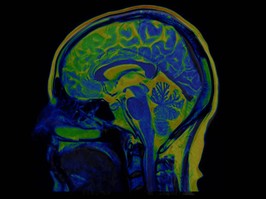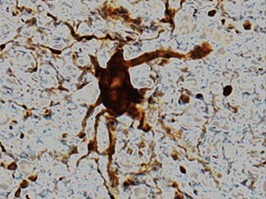brains are big these days. in the past ten years, there’s been a lot of research into how concussions affect the brain, how people develop dementia, what markers exist for brain diseases, how changing the brain can impact mental disorders and what measures may stave off neurological diseases like alzheimer’s disease. but to do this important work, researchers need human brains. it’s why brain banks in canada accept donations from individuals who have had brain diseases, mood disorders or concussions — or from those enrolled in longer-term research studies.“there is an increased interest in examining brain tissue,” says nalini sen, director, research, knowledge translation and exchange at the alzheimer society of canada. “brain donations can have a significant impact on having a better understanding of alzheimer’s and dementia,” she says. “without research that wouldn’t be possible.”
i want to donate my brain
there are two brain banks in canada where the general public can make their donations.one is
the douglas-bell canada brain bank, located at the douglas mental health university institute and connected to mcgill university. it is home to and over 3,000 brains, as well as a large database containing key information about the brain donors. it collects brains from people who have had parkinson’s disease, alzheimer’s disease, and other dementias, as well as mental disorders such as schizophrenia, severe depression, bipolar disorder, and substance use disorders. the brains are obtained from people who did or did not die by suicide.
the maritime brain tissue bank is located at the faculty of medicine, dalhousie university in halifax. it collects brain tissue to make it available for researchers who are trying to better understand the causes of dementia.there are also other brain banks in canada that accept donations from people enrolled in long-term research studies.after an individual and their family fill out a form authorizing the donation of their brain after death, the process can be straightforward, or a bit complicated, depending on where they’re located in canada. if someone lives in a small community, their body has to be sent to a hospital where a brain pathologist can conduct an autopsy and render a cause of death, says sen, since not every hospital has such a pathologist. she adds that the potential transportation fees can cost a family several hundred dollars.once the autopsy is done, the family is responsible for making arrangements with the hospital to get the brain to a bank and making sure the necessary forms provided are completed correctly to ensure things like the correct delivery location and appropriate packing. again the family could be facing significant shipping fees to move the sample — half of which is retained by the hospital — to the bank where it is frozen and stored until the bank decides the sample is no longer useful. “it can be quite an involved process for the family,” she says. “it is unfortunate that there are limitations on something that is so positive.”
how do researchers get my brain?
public sector researchers can obtain brain tissue, as long as their research protocol is approved by their institution’s research ethics board — they just have to fill out several forms and apply. then they obtain samples. small slices of the brain can be used by researchers and one slice can benefit hundreds of studies, says sen. by studying these brain segments, researchers can develop new ways of diagnosing dementias, developing treatments and learn about the effects of concussion and develop safety protocols that protect the brain.“[donations] facilitate research that can discover the [biological causes] of someone’s symptoms,” says carmela tartaglia, associate professor, tanz centre for research in neurodegenerative diseases at the university of toronto and a cognitive neurologist in the memory clinic at the toronto western hospital. “it provides us with the definitive underlying causes of the behavioural, cognitive or motor changes. this can provide avenues for treatment.”
brain banks help answer questions about, well, brains
over the last five years, approximately 1 000 brain samples were distributed annually to the scientific community, according to the douglas-bell canada brain bank. tartaglia says recent investigations have uncovered evidence that various neurodegenerative diseases like chronic traumatic encephalopathy (cte) can co-exist with other neurodegenerative diseases such as alzheimer’s disease, parkinson’s disease or frontotemporal dementia. “we have also learned that not all people who suffer multiple concussions get cte, so it helps us look for risk factors for vulnerability as well as resiliency factors,” she says.
we need more brains
“we do need more people to donate brains,” says tartaglia. “but there needs to be funding as it is very expensive to examine brains and do all the experiments that will allow us to learn more so as to develop treatments for many of the brain diseases that currently have no cures.” sen says interest is high but that costs are a deterrent for some families. “we receive a lot of requests for information,” she says.sen hopes donation rates will go up, as canada’s population is aging and there is much research that needs to be done into identifying and treating neurological conditions. “it is invaluable to examine the donation of a brain,” she says.
don’t miss the latest on covid-19, reopening and life. subscribe to healthing’s daily newsletter covid life

 4 minute read
4 minute read





